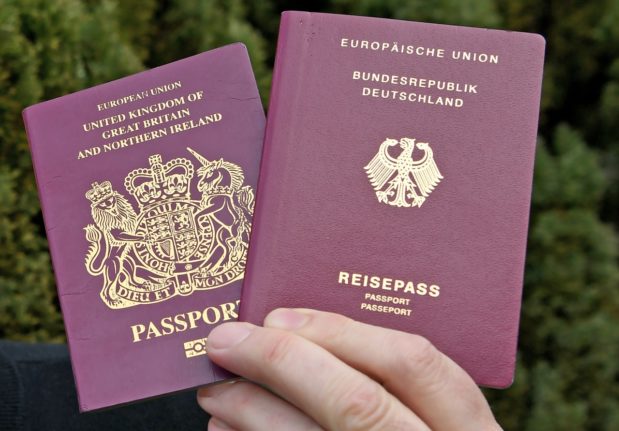After returning from the summer break on Monday, cabinet ministers are forging ahead with plans to drastically reshape Germany’s citizenship and naturalisation laws.
According to Stephan Thomae, an FDP politician working on the reforms, a cabinet vote on the citizenship bill is scheduled at the next cabinet meeting on Wednesday, August 23rd.
“The current status is that the citizenship law will be presented to the cabinet during the summer break,” a spokesperson for Thomae revealed.
Following a review and amendment process, the latest draft will “be in cabinet tomorrow”, she added.
In response to an earlier request, the spokesperson told The Local that there were “no more points of conflict” in the draft legislation.
That suggests that the government has now ironed out controversial aspects of the bill and will be presenting a new version of it at cabinet tomorrow.
The draft will also be presented by Interior Minister Nancy Faeser at the Federal Press Conference on Wednesday at 12:30pm.
A successful vote in cabinet would then pave the way for a parliamentary vote after the Bundestag returns from recess on September 5th.
READ ALSO: TIMELINE: When will Germany push through the new dual citizenship law?
Sweeping reforms
Since the traffic-light coalition of the Social Democrats (SPD), Greens and Free Democrats (FDP) took office in December 2021, the government has been working on overhauling Germany’s naturalisation laws.
Back in May, a draft version of the new citizenship law was published on the Interior Ministry’s website.
Since then, it has been in a review process in which federal state governments and other stakeholders submit feedback on the legislation and proposals for amendments.
The reforms detailed in the bill include getting rid of a longstanding rule that forbids the holding of multiple nationalities for non-EU citizens. Once the new law comes into force, people from non-EU countries will be able to keep their old passports even after becoming German.
READ ALSO: UPDATED: The key points of Germany’s draft law on dual citizenship
Other changes set out in the draft law include slashing the period of residency required for naturalisation from eight years to five – or from six to three in exceptional circumstances – and easing language requirements for over-67s.



 Please whitelist us to continue reading.
Please whitelist us to continue reading.
Any news on if they could ease the requirements for those who have a female German ancestor who couldn’t pass on citizenship to her children and the children being born prior to 1949? Currently left out of 5 stag and only covered under 14 stag in conjunction with a 2019 decree from the BVA (which requires B1 German language skills)